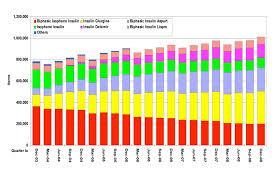For many people  with type 1 diabetes, daily treatment and management of the condition is a big part of their life. But is one form of treatment better than others?
with type 1 diabetes, daily treatment and management of the condition is a big part of their life. But is one form of treatment better than others?
A new review explored long-acting insulin in the treatment of type 1 diabetes. The researchers found evidence that this treatment method was more effective at controlling type 1 diabetes than immediate-acting insulin. They also found that long-acting insulin was tied to fewer safety concerns, including weight gain and severe diabetic episodes.
In type 1 diabetes, which is often diagnosed during youth, the body doesn’t produce insulin — a hormone that helps turn sugar into energy — causing issues with blood sugar levels. Because the body of type 1 diabetes patients doesn’t produce insulin, insulin therapy is required.
According to the authors of this study, which was led by Andrea C. Tricco, PhD, of the Li Ka Shing Knowledge Institute at St. Michael’s Hospital in Ontario, Canada, some have suggested that newer, long-acting insulin treatments (like glargine and detemir) might be better than immediate-acting versions of insulin therapy (like Neutral Protamine Hagedorn).
To explore the topic, Dr. Tricco and team identified 39 studies comparing the two insulin therapy methods in 7,496 adult type 1 diabetes patients.
In reviewing the studies, the researchers found that long-acting methods were slightly more effective at reducing glycosylated hemoglobin (A1C) levels — a measure of average blood sugar levels over several months.
The patients on long-acting insulin also gained less weight and were less likely to experience severe hypoglycemia — when blood sugar drops so low that medical attention is required.
When looking at cost-effectiveness, the majority of studies found that long-acting insulin was more expensive, but more effective.
“Patients and their physicians should tailor their choice of insulin according to preference, cost and accessibility,” wrote the review authors.
It is important to note that these findings were based on a review of previous studies. Dr. Tricco and team noted that further research comparing long-acting and immediate-acting insulin treatment options is needed.
This study was published October 1 in The BMJ.
Funding for the study was provided by the Canadian Institutes for Health Research/Drug Safety and Effectiveness Network (CIHR/DSEN). No conflicts of interest were reported.
Citation:
Last Updated:
October 1, 2014
Source:




